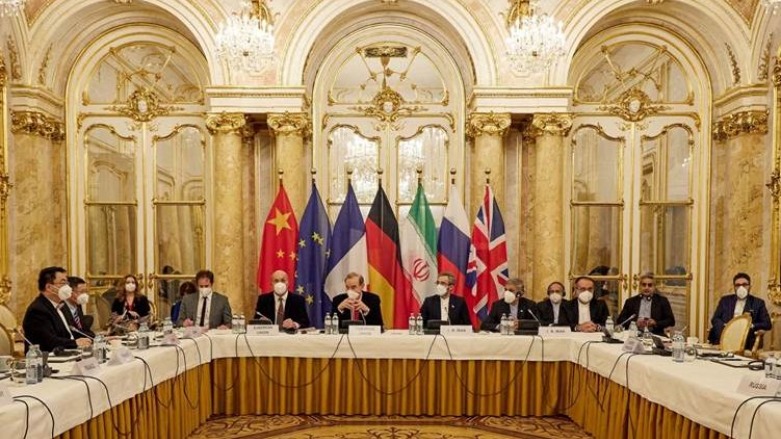US: Iran nuclear talks must be concluded soon

WASHINGTON DC (Kurdistan 24) – Speaking to journalists on Monday, a senior State Department official stated that there was only a short time left to conclude negotiations on returning to the Iranian nuclear accord, formally known as the Joint Comprehensive Plan of Action (JCPOA), given the advances that Iran is making in its nuclear program.
However, the official did not say what the US would do if the talks reached the stage where Iran decided that a return to the JCPOA would no longer be fruitful, as its nuclear program had grown so advanced.
If that happened, the Biden administration official's comments seemed to set the stage for blaming the Trump administration for having left the JCPOA in the first place. However, it was unclear how that would address the security challenges that would follow from a nuclear-armed Iran.
The last round of JCPOA negotiations, which are being held in Vienna, was paused on Friday to allow the negotiators to return to their capitals for consultations on how to proceed.
The talks have been ongoing for ten months. The Biden administration had expected a quick conclusion, as it had assumed that Iran's top priority was to secure the lifting of sanctions that the Trump administration had imposed after its 2018 withdrawal from the agreement.
However, it seems to have misjudged Iran's position.
Two Paths—Same Negotiating Posture toward Iran, as toward Russia
The senior US diplomat speaking on Monday outlined two possible paths for the future. He described the preferred US path: reaching an agreement. But there was an alternative path, he said, in which there would be no agreement, but there would, instead, be "mounting tensions and crisis."
The choice was up to Iran, he stated. But of course, Iran may believe it has ways to mitigate those tensions and crises, while it is prepared to pay some price to acquire a nuclear weapon.
Moreover, Iran is aligned with Russia. Tehran might calculate that the extreme tensions over Ukraine between the US and Europe, on the one hand, and Russia on the other, might provide it with opportunities.
Indeed, the Biden administration has assumed a similar position with Russia over Ukraine: there are two choices, and it is up to the other side to choose the one it prefers.
As Secretary of State Antony Blinken told reporters last Wednesday, "We've been clear to Russia that there are two paths: a diplomatic one, but also a path of defense and deterrence," and the latter would lead "to massive consequences."
So far, the Biden administration has not been successful in this approach with either Ukraine or Russia. It never sets a clear deadline, and the result is interminable discussion.
"Handful of Weeks" for Concluding JCPOA Talks
"We are in the final stretch" of the Iranian nuclear negotiations, a senior State Department official told reporters on Monday. "We only have a handful of weeks left to get a deal."
He described the most recent round of discussions as "the most intensive that we've had to date," and "we made progress narrowing down the list of differences to just the key priorities on all sides."
"Now is the time for political decisions," he affirmed. Tehran has "to decide whether it's prepared to make the tough political decisions that have to be made now" to secure a "mutual return to the full implementation of the JCPOA."
Yet Tehran seems to have another perspective. Foreign Ministry Spokesman Saeed Khatibzadeh stated on Monday that Tehran had "creatively and innovatively submitted its ideas in writing," perhaps taking a page out of Russia's playbook, and was waiting for a US response.
Asked about that, the senior State Department official replied that he was unaware of that Iranian document.
The US official did, however, describe progress in the negotiations since their renewal in November under the hardline government of President Ebrahim Raisi, who took office in August.
Initially, it was "very tough," and Iran took positions that were "inconsistent with all of the [earlier] discussions," the State Department official said, as well as "inconsistent with what any logical return to the JCPOA would entail."
But the talks have returned to being "serious" and "businesslike," he explained, even as "significant gaps" remain.
